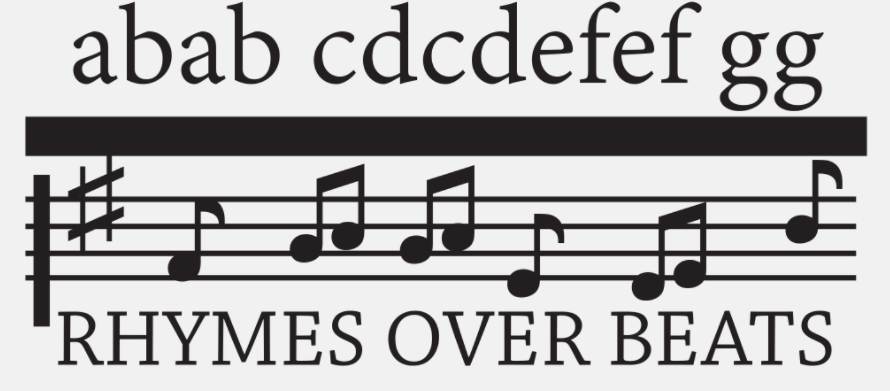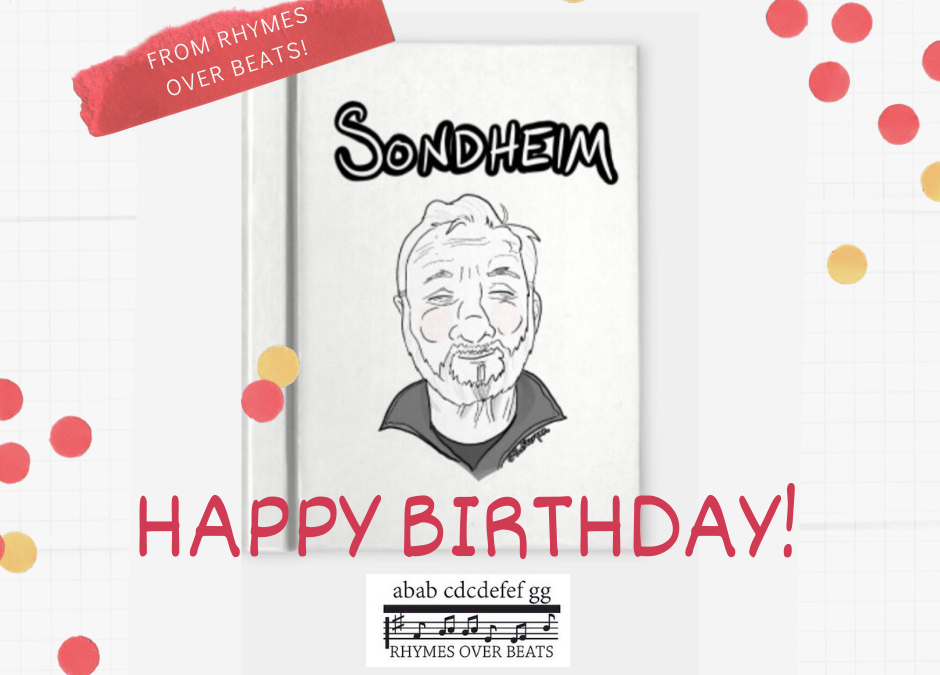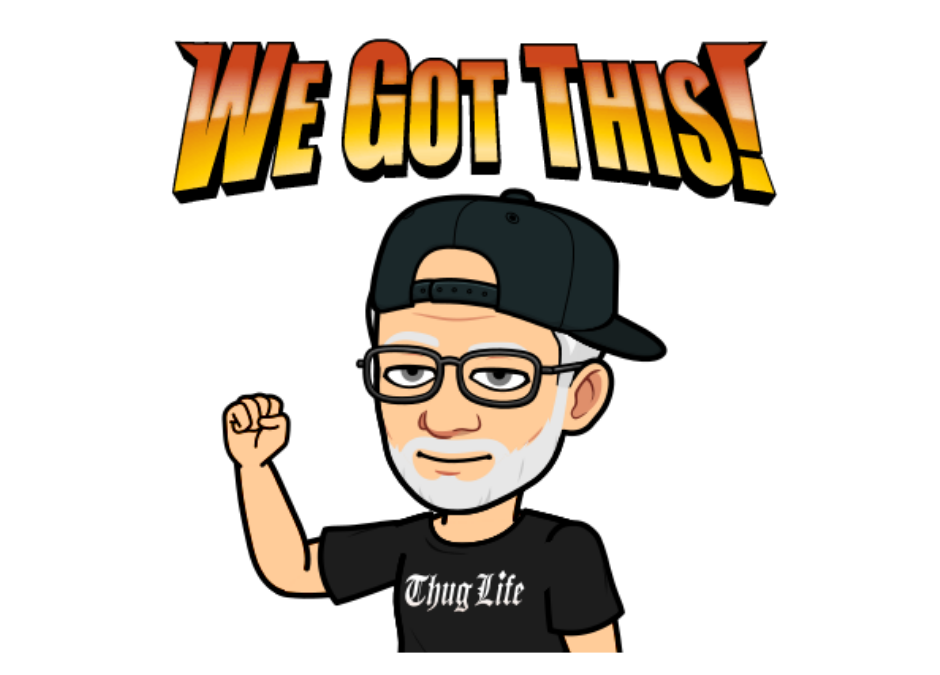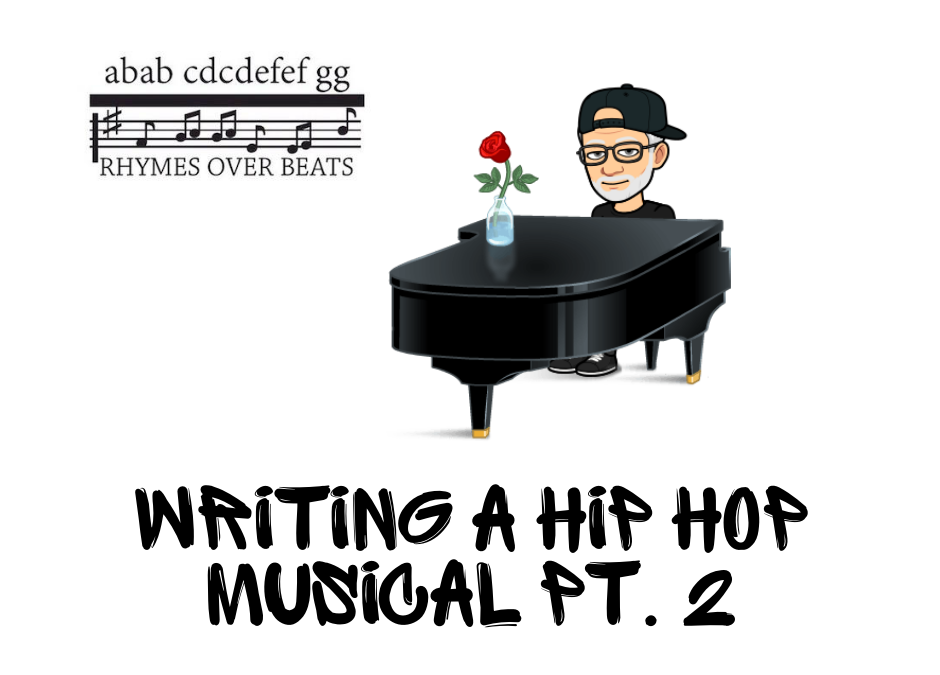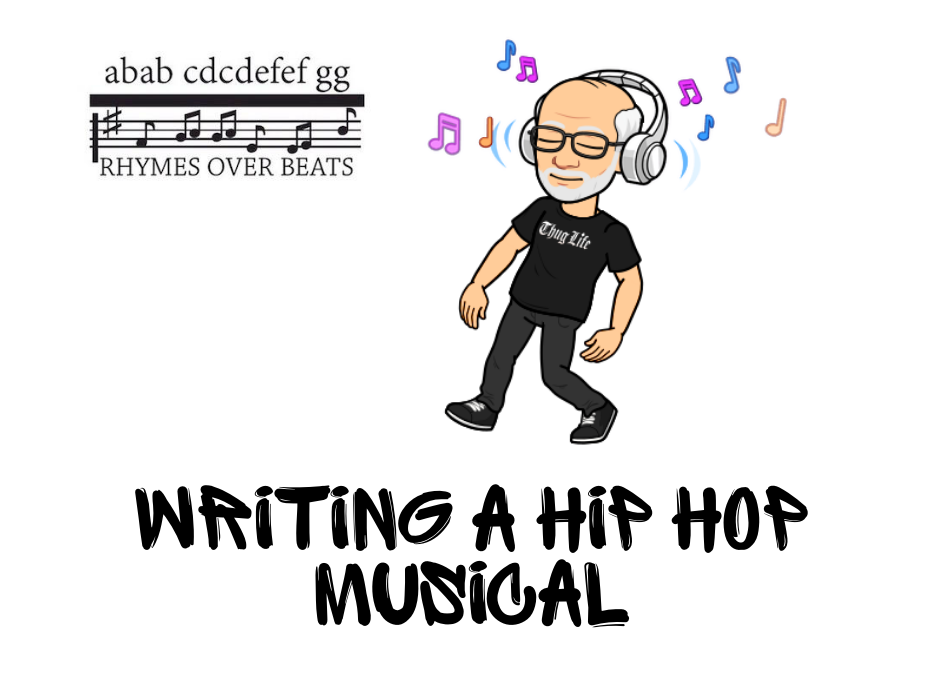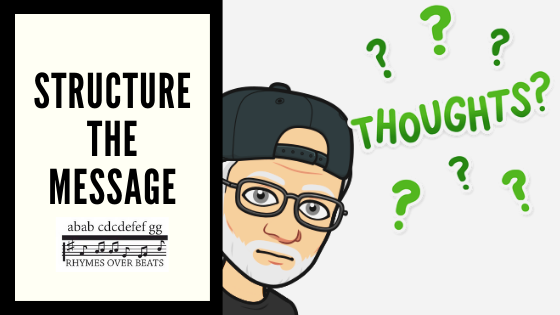
Structuring the Message
What I’m Thinking About
Since I have not been able to do many of the things I normally do, I’ve had plenty of time to think. Not that I don’t normally think, but I don’t do it as much as I have been.
One of the things I have been thinking about is sonnets. The kind Shakespeare wrote.
Sonnets?
Shakespeare’s sonnets had very strict rules.
- They are fourteen lines long in a four line, four line, four line, and two line structure.
- The rhyme scheme is abab cdcd efef gg. (Coincidentally this rhyme scheme is also part of the rhymes over beats logo.)
- They are written in iambic pentameter.
If you don’t follow the rules, you have not written a sonnet.
The Need for Structure
Compared to writing a sonnet, writing a blog like this is easy.
But even this blog has rules, and has a structure.
- I try to connect it to hip hop theater in some way.
- I try to keep it short (under 300 words), but not too short (more than 150 words)
Having rules challenges us. We have to figure out how to say what we want to say within the structure we have chosen.
The constraints we put on ourselves lead to creativity. The obstacle is the path. Overcoming the obstacles is the path to our goal.
Our Goal
Our goal is to create work that speaks to those who love hip hop using the structure of theater, especially musical theater.
If you are reading this blog, you are probably on the path with us.
Welcome. Stay Safe.
